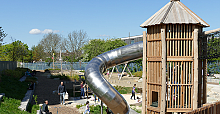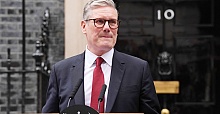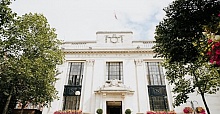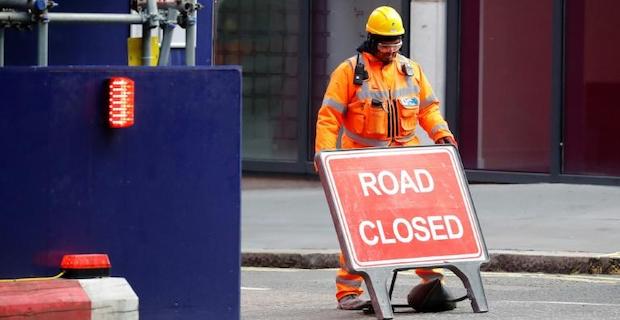The Office for National Statistics said the economy contracted by 2% in the three months to March, following zero growth in the final quarter of 2019. The decline was driven by a record fall in March, and reflects just one full week of lockdown. Analysts expect a bigger economic slump in the current quarter. This is the first official growth estimate since the government introduced social distancing measures at the end of March.
Ruth Gregory, senior UK economist at Capital Economics, said the figures showed the UK economy was "already in freefall within two weeks of the lockdown going into effect". She added: "With the restrictions in place until mid-May and then only lifted very slightly, April will be far worse." While analysts expected a larger quarterly decline of 2.6% in the first three months of the year, it still represents the biggest contraction since the end of 2008, when Lehman Brothers collapsed.
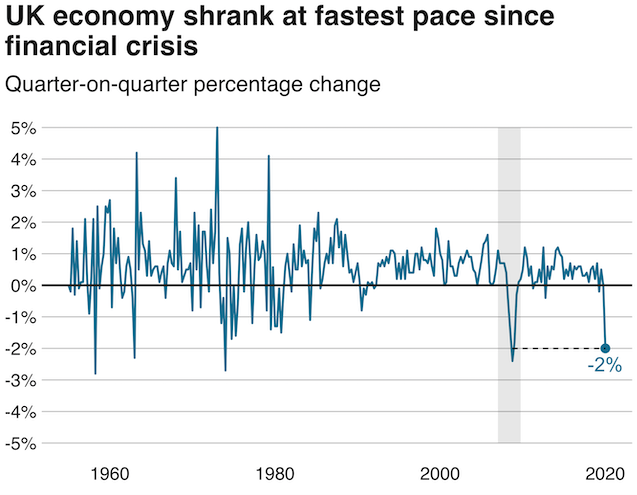
The ONS said there had been "widespread" declines across the services, manufacturing and construction sectors. This includes a record 1.9% fall in services output, which includes retailers, travel agents and hotels. It added: "This is the largest quarterly contraction since the global financial crisis and reflects the imposing of public health restrictions and voluntary social distancing put in place in response to the Covid-19 pandemic".
Opening up
The figures come as some of the lockdown restrictions are starting to be eased. Some employees in England who cannot work from home are now being encouraged to return to their workplaces. Sectors "allowed to be open, should be open", the government says. These include food production, construction and manufacturing. In other developments, estate agents in England can now reopen, viewings can take place and removal firms and conveyancers can re-start operations, so long as social-distancing and workplace safety rules are followed. On Tuesday, Chancellor Rishi Sunak announced an extension of the furlough scheme subsidising wages to the end of October. While the scheme was "expensive", he told the BBC that the cost to society of not doing it would be "far higher".
BBC NEWS


 Prime Minister Keir Starmer's 2025 Easter message
Prime Minister Keir Starmer's 2025 Easter message After Nesil Caliskan a by-election will be held in Jubilee ward in Enfield
After Nesil Caliskan a by-election will be held in Jubilee ward in Enfield Publishing the analysis, Labour’s Cllr Ergin Erbil said Everybody in Enfield deserves basic rights
Publishing the analysis, Labour’s Cllr Ergin Erbil said Everybody in Enfield deserves basic rights Gaza-Israel conflict Statement from Cllr Ergin Erbil, Leader of Enfield Council
Gaza-Israel conflict Statement from Cllr Ergin Erbil, Leader of Enfield Council The European Union called on Turkey to uphold democratic values
The European Union called on Turkey to uphold democratic values Turkish citizens in London said Rights, Law, Justice
Turkish citizens in London said Rights, Law, Justice The Council of Turkish Cypriot Associations Geneva response letter
The Council of Turkish Cypriot Associations Geneva response letter Sustainable Development and ESG, Will This Become the Course for Turkic World
Sustainable Development and ESG, Will This Become the Course for Turkic World The 'Prince of Paris' has impressed in his first EuroLeague season
The 'Prince of Paris' has impressed in his first EuroLeague season Saran Media And Euroleague Basketball Extend Media Rights Partnership for Four More Years
Saran Media And Euroleague Basketball Extend Media Rights Partnership for Four More Years Will Rangers be Jose Mourinho’s next victim?
Will Rangers be Jose Mourinho’s next victim? Jose Mourinho's Fenerbahce face Rangers on Thursday
Jose Mourinho's Fenerbahce face Rangers on Thursday Barclays has become the biggest UK lender so far to cut mortgage rates
Barclays has become the biggest UK lender so far to cut mortgage rates THE SPRING STATEMENT EXPLAINED, UK ECONOMIC OUTLOOK AND GROWTH FORECASTS
THE SPRING STATEMENT EXPLAINED, UK ECONOMIC OUTLOOK AND GROWTH FORECASTS Launch of Made in Enfield gift shop to celebrate local artists and designers
Launch of Made in Enfield gift shop to celebrate local artists and designers Trial used smart Wi-Fi sensors for live building occupancy data to optimise
Trial used smart Wi-Fi sensors for live building occupancy data to optimise
